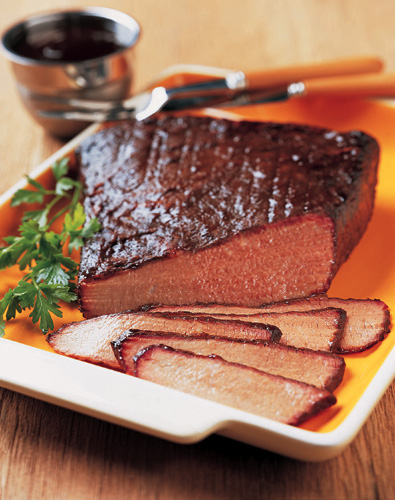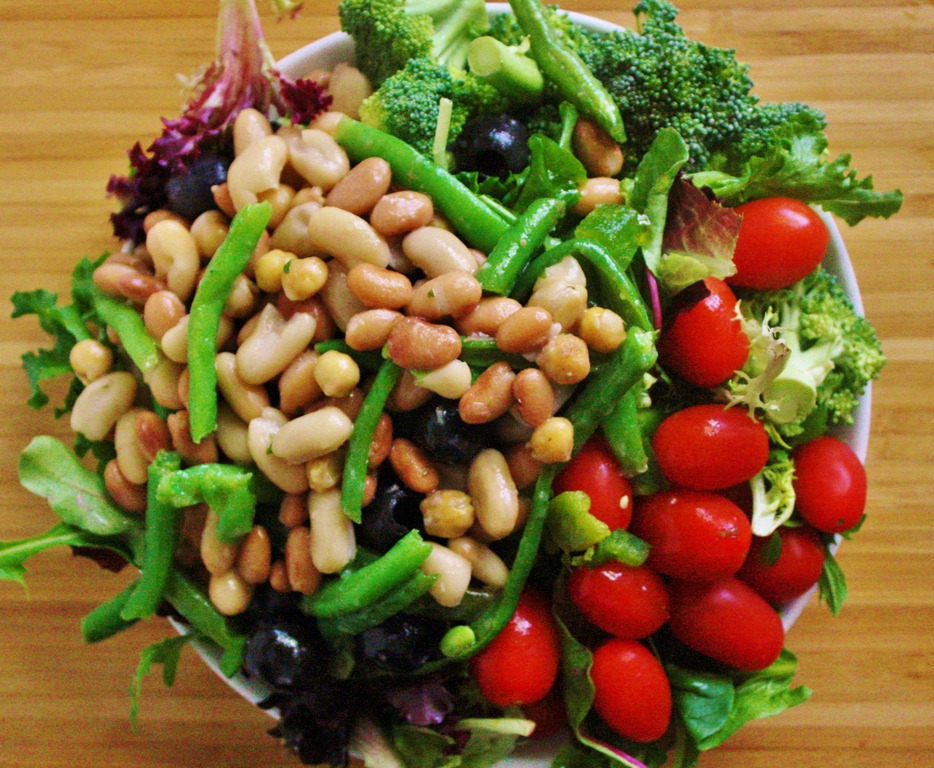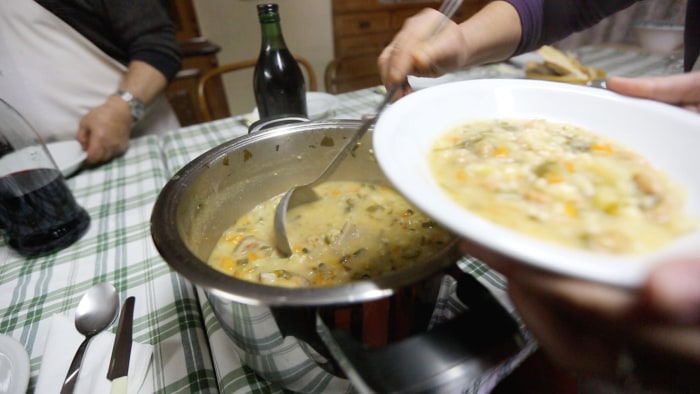Dan Buettner researches longevity. He has discovered certain "Blue Zones," in which the populace enjoy 100-plus years of life. He recently came up with a follow-up, Blue Zones Solutions, to his earlier Blue Zones.

One could think, "Sure, but Sardinia, Icaria, Okinawa? Isolated places, maybe it's something in the water." But there is a Blue Zone in the U.S., in California, an enclave of Seventh Day Adventists.
By emulating these Zonies, we can prevent illness, as opposed to treating them (and destroying the body in the process while going broke) after they come into being.
There are a number of factors that Buettner has pinpointed amongst these Zonies, and as Jews, we meet most of them. Religion, red wine, prioritizing family, lock down a life purpose.
But we suck in one area: Food. Seventh Day Adventists, following Beraishis, consume a plant-based diet. Humanity was only allowed to eat red meat following the Mabul; it didn't become mandatory. How many of us restrict our red meat consumption only to Shabbos and yontif? (The other regions probably have very little access to red meat in general, and ergo can't binge on it.)
We eat TOO MUCH and BADLY. That, I think, is one of our major struggles in how to adapt to too much blessing as opposed to the previous too much suffering.
Each Blue Zone has different superfoods to their region; the U.S. version is salmon and oatmeal (I'll be selling oat bran in another post). Change is frightening, and hard, but if done slowly and gradually, you too could subsist on vegetables . . . the way I do, wink wink.
Buettner's plan is to subtly alter our environment to casually encourage healthier behaviors; non-exercise exercise and better choices in restaurants. A mayor of a meat-crazed town in Texas is attempting to apply those measures. A doctor in Finland rescued a region from themselves, but they didn't even notice the methods he used to do so.
There is in our world a steady, yet slow rise in awareness that we have to alter our diet. It is a commandment to take care of these bodies we were given, and it is a violation to harm them in any way. But as we see from ineffectual takkanos, it cannot come from a distant authority, unless he has a magical way of enforcing it.
On FYI's Arranged, the Roma parents that are marrying off their 18-year-old son cheerfully say that the age of 70 is considered ancient in their world, because their food is so unhealthy. Yikes.
Start with small, incremental movements. Pick one, stick to it for a while, then try another: Drink only water, as opposed to investing in soda and juices. Have red meat only on Shabbos. Cook a hearty and tasty bean soup once a week. If dining out is a regular habit, be smarter with the menu, or cut back a few times a month. Experiment with spices and herbs, abandoning salt and soup mixes as primary seasonings.
It doesn't have to be all or nothing. In a short while, you'll see food differently, and feel better.
By emulating these Zonies, we can prevent illness, as opposed to treating them (and destroying the body in the process while going broke) after they come into being.
There are a number of factors that Buettner has pinpointed amongst these Zonies, and as Jews, we meet most of them. Religion, red wine, prioritizing family, lock down a life purpose.
But we suck in one area: Food. Seventh Day Adventists, following Beraishis, consume a plant-based diet. Humanity was only allowed to eat red meat following the Mabul; it didn't become mandatory. How many of us restrict our red meat consumption only to Shabbos and yontif? (The other regions probably have very little access to red meat in general, and ergo can't binge on it.)
 |
| And on Shabbos, only ONE piece should be enough. |
Each Blue Zone has different superfoods to their region; the U.S. version is salmon and oatmeal (I'll be selling oat bran in another post). Change is frightening, and hard, but if done slowly and gradually, you too could subsist on vegetables . . . the way I do, wink wink.
 |
| Via thewannabechef.net |
Buettner's plan is to subtly alter our environment to casually encourage healthier behaviors; non-exercise exercise and better choices in restaurants. A mayor of a meat-crazed town in Texas is attempting to apply those measures. A doctor in Finland rescued a region from themselves, but they didn't even notice the methods he used to do so.
On FYI's Arranged, the Roma parents that are marrying off their 18-year-old son cheerfully say that the age of 70 is considered ancient in their world, because their food is so unhealthy. Yikes.
Start with small, incremental movements. Pick one, stick to it for a while, then try another: Drink only water, as opposed to investing in soda and juices. Have red meat only on Shabbos. Cook a hearty and tasty bean soup once a week. If dining out is a regular habit, be smarter with the menu, or cut back a few times a month. Experiment with spices and herbs, abandoning salt and soup mixes as primary seasonings.
 |
| The Sardinians live on this soup. |
3 comments:
How many of us restrict our red meat consumption only to Shabbos and yontif?
We do! (Occasionally we eat out or get a takeaway, but not often.) Admittedly for the very English reason that Dad likes a cup of tea before bed without waiting hours to be milchik. And we're having salmon for dinner tonight too!
By the way, there was something on the BBC news website today that made me think of you: a big argument between scientists over whether exercise helps you lose weight or whether diet alone is the key. Though even the "diet alone" scientists said exercise is important to prevent disease.
You're British; Americans are insanely meat-crazed, and with all our rolling pastures, we have place where to raze all that cattle. We like killing ourselves and the environment, apparently.
Yes, exercise is important for health, but walking and housework is sufficient. Not strenuous, murderous gym outings, which I abhor.
British has nothing to do with it; at university the other frum Jewish men who ate the kosher food at the shul were all meat-mad.
The NHS website seems to think that housework can count as exercise, but only if it leaves you sweaty and out of breath. Personally, getting outdoors and jogging makes me feel better in a way that housework simply doesn't, but whatever works for you!
Post a Comment